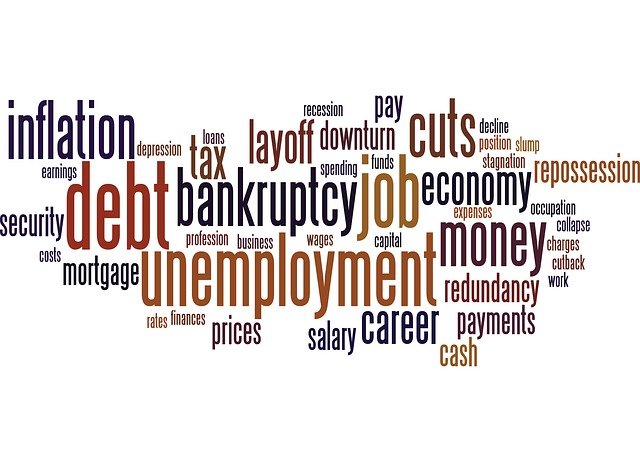
So to answer this question its important to first of all know the definition of BANKRPUPTCY, from Investopedia:
“Bankruptcy is the legal proceeding involving a person or business that is unable to repay outstanding debts. The bankruptcy process begins with a petition filed by the debtor, which is most common, or on behalf of creditors, which is less common. All of the debtor’s assets are measured and evaluated, and the assets may be used to repay a portion of outstanding debt.”
As with most answers to questions related to bankruptcy, it is hard to know exactly what will happen to your specific debt without knowing all the details of your situation that is why I always suggest you consult an experienced bankruptcy lawyer to get answers to your specific situation. Additionally, the answer to where does bankruptcy debt go – depends on which chapter of bankruptcy you file since the results differ quite a bit between the two most common consumer bankruptcies Chapter 7 and Chapter 13.
Where does bankruptcy debt go? To be clear bankruptcy is a legal proceeding one carries out in the US Bankruptcy Courts to allow individuals or businesses to obtain freedom from their debts. It can also simultaneously providing creditors an opportunity for repayment of the debt under a court guided repayment program.
The following summaries may help you get an idea of what could happen to your debt after you file:
Filing Chapter 7 Bankruptcy quickly gets rid of dischargeable debt, such as unsecured credit card bills, personal loans, and medical bills, without requiring you to make monthly repayments to your creditors for the next three to five years, (this is required during a Chapter 13). To qualify, your wages can’t be higher than the income limits set by your state under the Means Test. You’re allowed to keep only enough property to maintain a household and job, as determined by your state legislature.
Chapter 13 Bankruptcy is usually the go-to chapter for those who make too much money to qualify for Chapter 7 or would lose too much property by filing for Chapter 7. In a Chapter 13 you are allowed to make lower monthly payments to your creditors over a three to five years in a court approved/supervised payment plan. Once the plan is complete, any remaining balances owing your creditors on dischargeable debts are wiped out. You can usually keep all of your property—though the more you have, the higher your monthly payment will likely be.”
As you can see these summaries provide some very basic insight into what you might expect with your own bankruptcy. To clarify, the word “dischargeable” means that after you file for bankruptcy and have met the requirements of the bankruptcy code, the court and trustee assigned to your case, you will no longer be obligated or liable to pay back those debts and you can have a fresh financial start.
Where does bankruptcy debt go? It’s important to be aware that regardless of which type of bankruptcy you enter, there are certain non-dischargeable debts which usually include unpaid income taxes, child support, and student loans.
Give us a call today to set up your consultation with a Utah attorney and figure out which option is best for you to regain financial freedom and to more fully answer the question where does bankruptcy debt go?